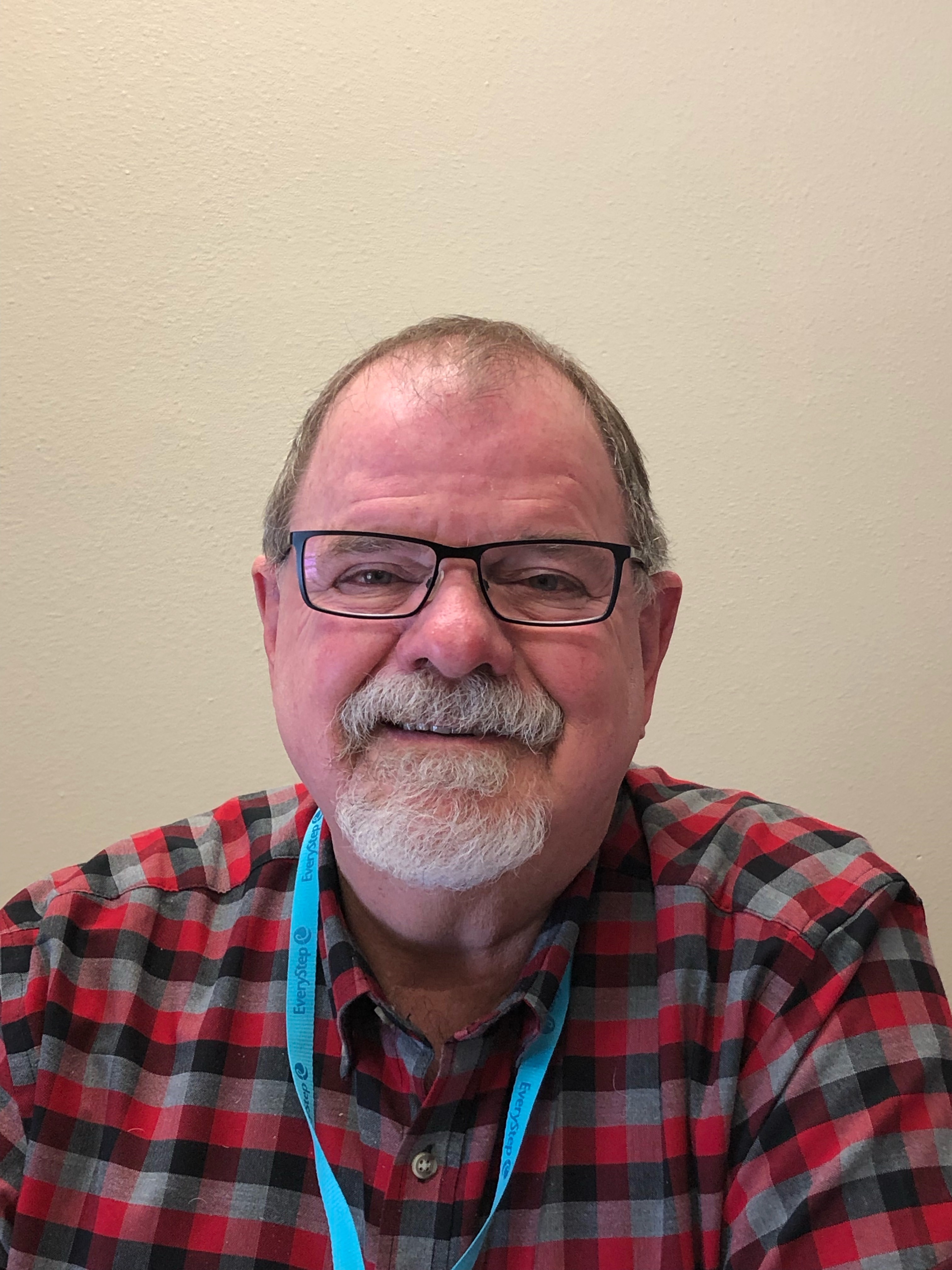December 24, 2018
A Story from our Grief & Loss Services: Mike Albert

It was a call no one wants to receive: just before Christmas, EveryStep Grief & Loss Services bereavement and spiritual care counselor Mike Albert learned that a patient he had been seeing for nearly eight months had accidentally set himself on fire. The man was being transported to the burn center at the University of Iowa.
Albert, who was traveling to Iowa City at the time to spend the holidays with family, called his team director to ensure it was okay for him to visit the man at the hospital.
Albert’s face was just the one the patient’s wife needed to see, as the woman collapsed into his arms.
Throughout the night Albert kept watch over the patient, praying and talking as he rested in the hospital bed. He was even present when the man passed away.
The “God thing,” as Albert refers to the event, was a chance for the bereavement and spiritual care counselor to do what he does best, provide support and care to patients in their final moments.
Albert’s no stranger to death, dying, and spirituality. Prior to working with EveryStep, he served as a pastor for 42 years.
“I had always received positive response from my care, and when I announced my retirement from the church and said that I was going to be working in centralIowa at EveryStep, person after person told me that they could really see me doing that,” he notes.
Albert’s role at EveryStep is two-fold: As a spiritual care counselor, his role is to provide spiritual support to patients and their families; as a bereavement counselor, he offers bereavement support and services to family and friends of hospice patients for up to 13 months after the patient’s death.
Additionally, Albert leads several support groups including a monthly support group, as well as an eight-week class called “Understanding Your Grief,” which includes materials from Dr. Alan Wolfelt, a renowned grief counselor who teaches the “10 Touch Stones.”
“Grief is an inward consolation of thoughts, while mourning is when you take grief public and you allow others to know that you are grieving,” Albert said. “It’s an important concept to help normalize feelings. You are not going crazy if you burst out and start crying.”
Despite his friends and family understanding his desire to help others as they approach the end of their lives, Albert is often faced with questions regarding why he chose such a path.
“The most common question I get from the public in some form or another is how do you do this? It’s difficult because you care for these people and their hurts become your hurts,” he said.
Albert further explains that working “around death all the time” is a calling:
“It’s not a job, it has to be something that you truly are called for. You have to have a heart for people and handle them in the hard stages of their life. You need to be comfortable with your own death and your own mortality.”
Each work day is different, and everything can change with a simple phone call, such as the one he received that Christmas season.
“The day can change with a phone call, you never know what’s going to happen and what the needs of the patient are,” he said.
One thing that Albert considers an important part of his care is that he sees patients wherever they call home. Whether that’s their own home, a residence that they’ve been living at, the nursing home, or at one of their children’s homes, it’s important for patients to feel comfortable.
EveryStep strives to promote dignity, independence, and quality of life for all through education, compassion, and effective community-based care. Staff members like Albert act with integrity and respect, serve with compassion, lead through excellence, and unite through teamwork.
“They aren’t just words on a piece of paper. Those are our values, and that’s what we live by every day. That’s what we strive for,” he said.
“We are focused on the patient’s needs, not on checking off our to-do list for the day,” he notes. “Grief is not anything you get over, you don’t just move on. You have to make the decision that you’re going to heal, and you have to face your grief and acknowledge your pain.”
If you or a loved one is experiencing loss, please feel welcome to contact us and explore our services at everystep.org.
This story is an edited excerpt of a piece written by Drake University student Cali Tonnesen